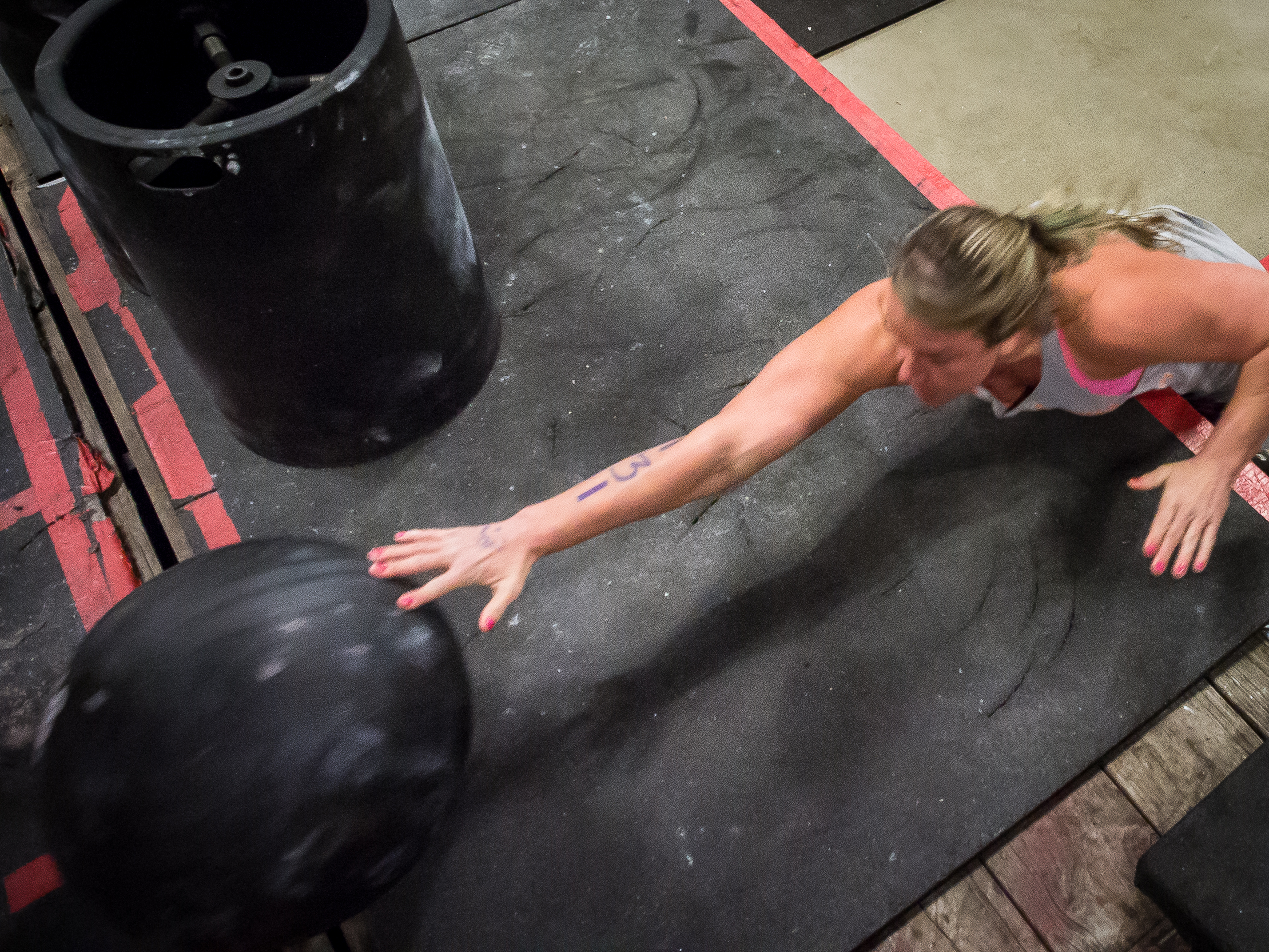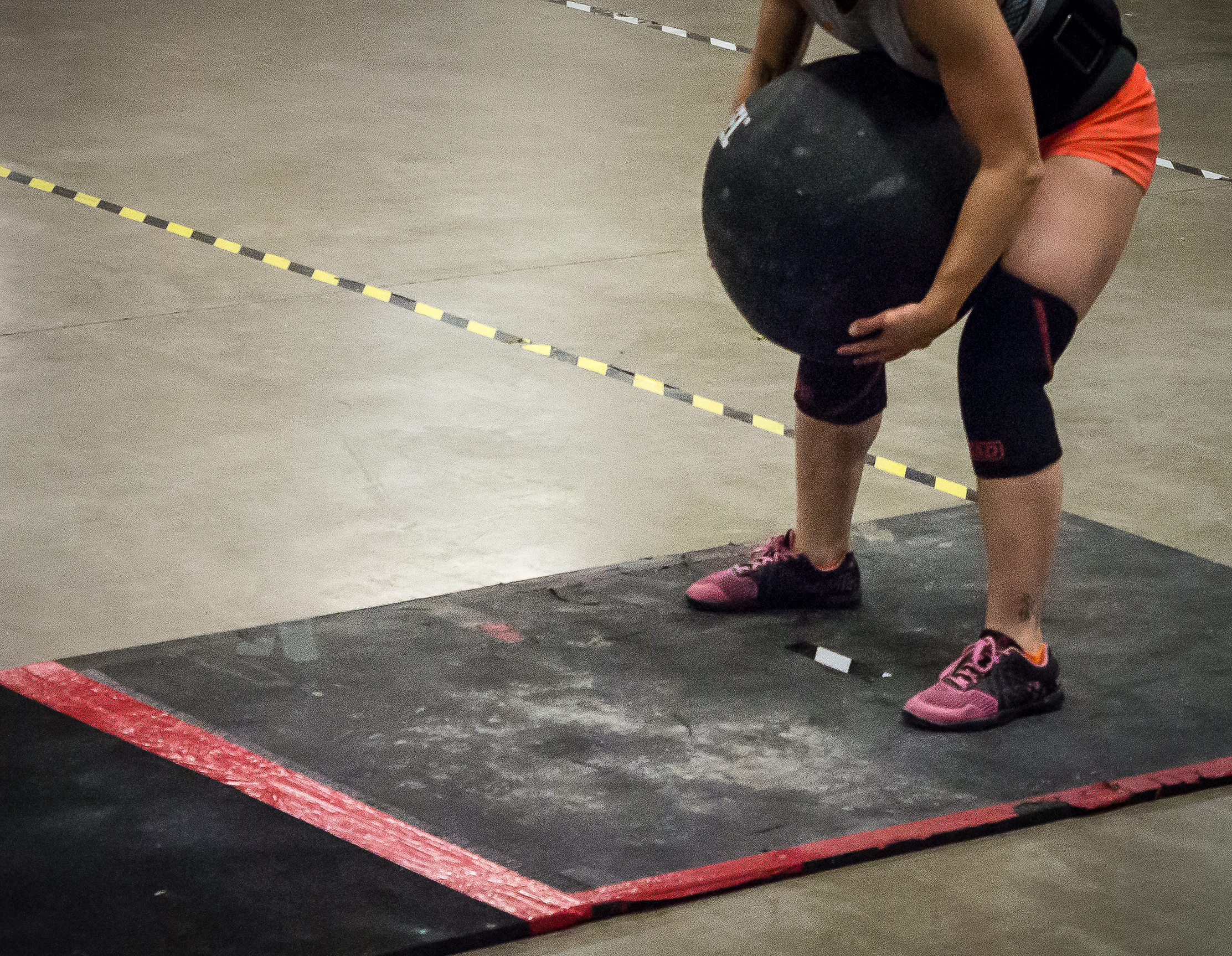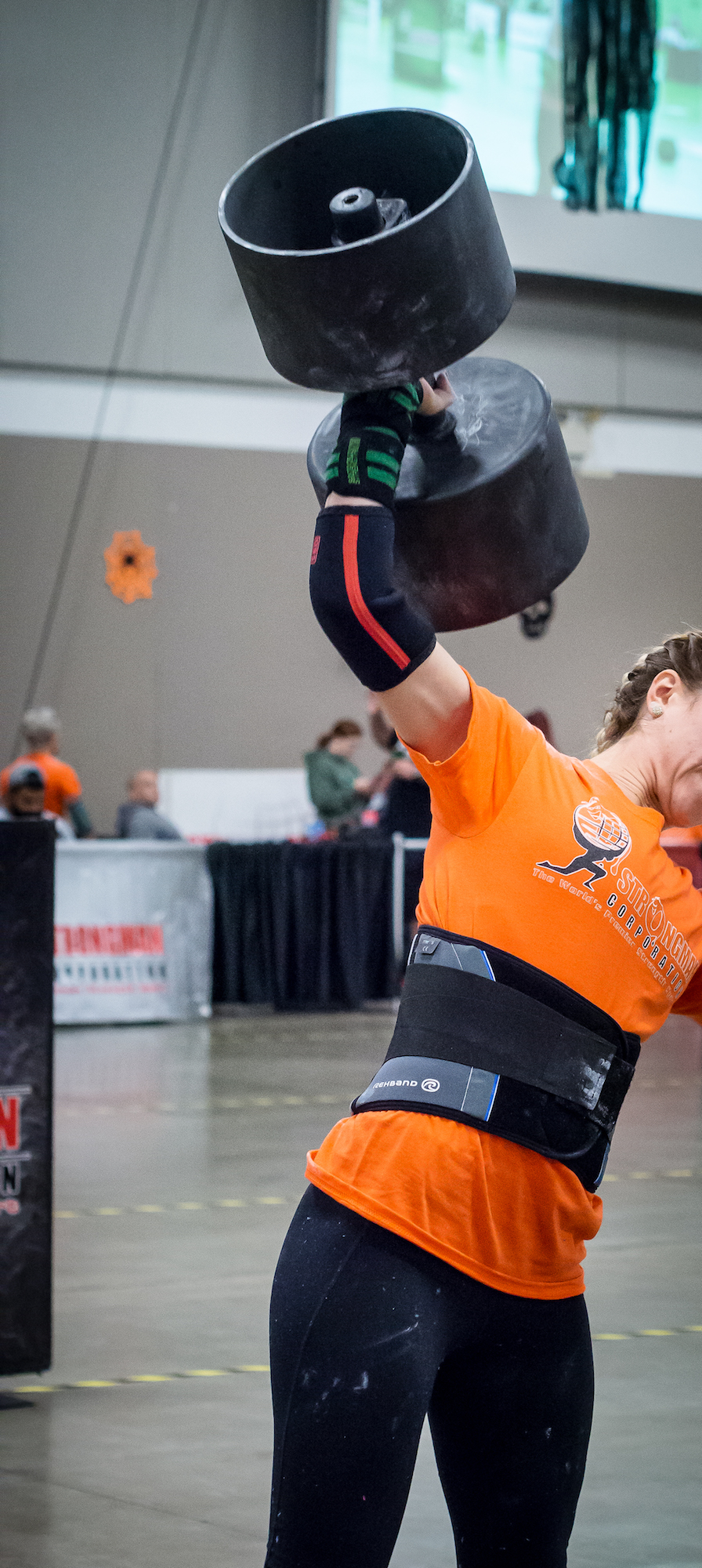All men make mistakes, but only wise men learn from their mistakes.
-Winston Churchill
As a coach, watching errors being made by talented athletes can be heart wrenching. Being strong is no longer simply good enough. You can not be sloppy and be successful. The good news is most mistakes can easily be corrected as long as you are aware of them. With video available to every athlete, you can find and fix those missteps with a good coach. They will save you precious time and improve your results if you put the time into proper correction.
A lifter loses control of her stone
Attending almost every major strongman contest over the last two years I saw the same miscues over and over again. Let’s review them and then go over the simple fix.
1. Not using the handle on a keg run and load. There is no reason for not using the handle to stop your hand from sliding. At the very least use it on the pick.
2. Not lining up properly over the stone. You must be in the proper position to deadlift the stone before you can load it.
3. Taking off from the start line when you don’t have full control of the implement. Yoke, keg, sandbag, stone; no matter what it is, to get to the finish it must be stable.
4. Pressing the Circus Dumbbell away from the center of gravity (or pushing the log forward instead of straight up). The further away from your center of gravity the implement gets, the harder it will be to complete the lift.
5. Not waiting for a down signal. There is never an excuse for this.
6. Fumbling with straps. The amount of reps you can lose here is staggering.
All these mistakes can be corrected by doing a very simple thing; drilling and conditioning. The goal is to condition the brain to operate on “auto pilot” and free up the thinking part of the brain for any strategy decisions you may need to make. The last thing you should ever do is think about having to grab the keg the right way or how your lifting straps wrap around a bar. It is inefficient and leads to mistakes.
Walking without control of the stone
Expert pilot Lawrence Gonzalez discusses different types memory in his book “Deep Survival”.
When you learn something complex… such as playing tennis or golf, it is stored in explicit memory..It’s the memory you can talk about. It allows you to remember a recipe for lasagna. But as you gain more experience you you do the tasks less consciously. You develop a feel for it…. This is called implicit memory. Implicit memories are unconscious, they happen like a smile.
This is why some people who have dementia can still play the piano: the memory to perform these activities is sorted in a different part of the brain, one that is not subject to the same reasoning. That is why it key to have your fundamental movements implicitly stored. You do them automatically and correctly every time.
Simple drilling of the basic activities listed above will program them into your brain and they will soon escape the thought process where you can make a mistake.
A fantastic example of this is driving. When was the last time you actually thought about how to drive the car? Most likely it was when you started learning. You had to think to yourself “Check the mirror, time for a turn signal, am I going to fast?” Now you just do it. I would wager that the bulk of the time you get in the car, you wind up at your destination while not thinking about the drive at all. It is all in your implicit memory, allowing you to have a conversation on your way home.
An athlete presses the circus dumbbell away from their center of gravity
Now, just apply those techniques to your events. Pick up the keg correctly and same way ten times in a row before training. Practice wrapping your straps while sitting on the couch. Always have a team member give you a down command on your presses. Use proper bar path on every rep; don’t accept sloppiness from yourself. Doing these activities over and over again is the only way to lower the stress on your rational brain. They pay off in the long run buy cutting seconds off each event and eliminating missed repetitions.
In most parts of the world when a difficult discipline like weightlifting is undertaken, students must master the basics before putting weights on the bar. Often in the United States we are anxious to get started and dive into the more exciting part of training before becoming proficient at our movements. This resulting bad habits can have a long term impact on your success. When you recognize this and invest time in perfecting the process you prove to be a smarter, more dangerous competitor with a much brighter future.
Images courtesy Michele Wozniak, Strongman Corporation


